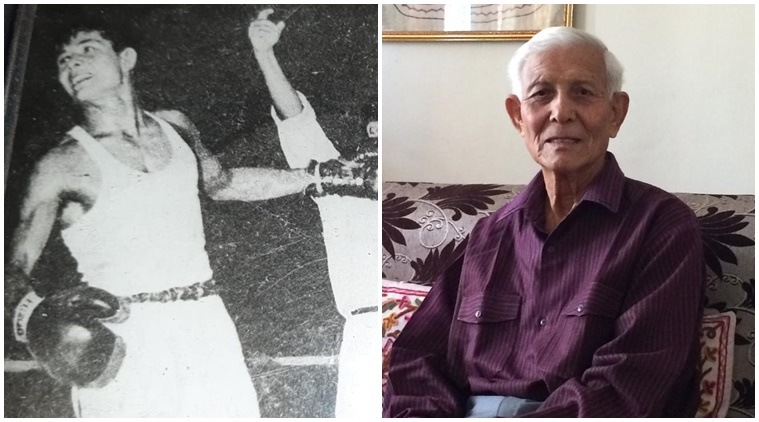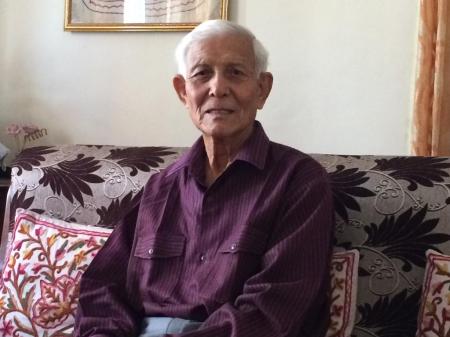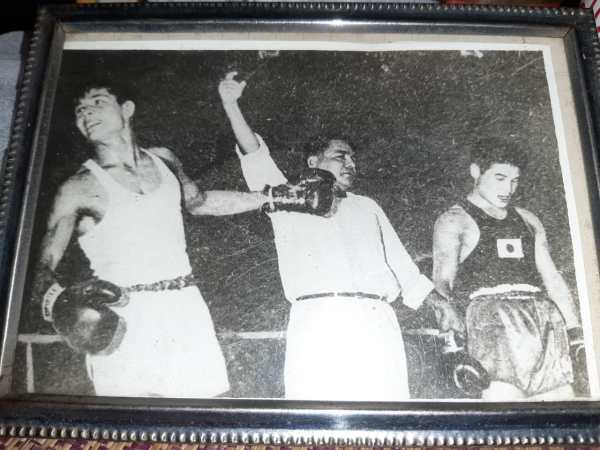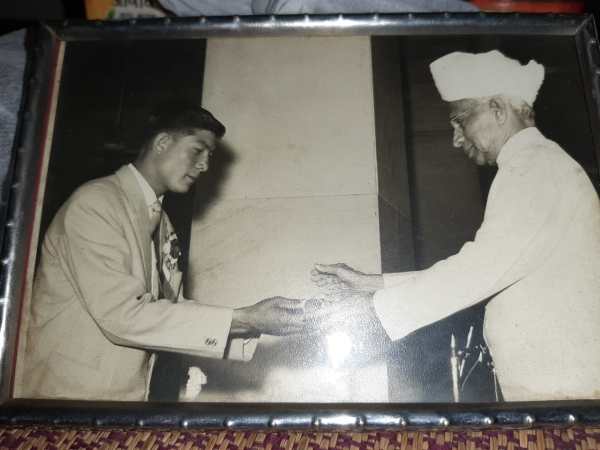 Padam Bahadur Mall won boxing gold in Asian Games in 1962.
Padam Bahadur Mall won boxing gold in Asian Games in 1962.
Padam Bahadur Mall, the first Indian boxer to claim an Asian Games gold medal, was restlessly waiting for the opening ceremony of the 1982 Games in New Delhi to wrap up. As soon as it concluded, he excitedly dragged his friend and two-time Asian Games champion himself, Hawa Singh, to a couple of blocks in the village, named after them.
The two legendary pugilists were so overwhelmed reading their names painted on the big board that they, self-admittedly, “acted like kids”. “We both congratulated each other. That evening brought back all the memories of the 1962 Asian Games. It was a special evening,” recalls 82-year-old Mall. Not just the gold-medal-winning bout, flashes of his entire career flickered through his mind, and the face of Amar Jung Thapa, his first coach, who lost his life in the 1962 Indo-China war, 45 days after his Jakarta feat.
The beginning
Suddenly, he remembered his childhood in Dehradun. He was fond of running and did fitness drills. Soon his father, Shankhu Mall, an Army man, made his son too follow his footsteps. Mall had no inkling about boxing when he joined the Gorkha Rifles Battalion. Seeing his fondness for running, coaches at his unit referred him to compete in an inter-unit competition in boxing.
 Padam Bahadur
Padam BahadurA 21-year-old Mall was surprised, because he knew nothing about boxing. Let alone fight, he had not even watched a bout in his life. “I knew nothing about boxing. But seeing his love for running and fitness drills, Indian Army boxing coach Amar Jung Thapa began giving me boxing lessons, when our unit was posted at Ferozepur (Punjab). As I was tall as compared to other boxers in my weight category, he only told me to just focus on hitting straight punches. He would then make me practice that for hours,” recalls Mall.
The coach’s assessment turned out to be intuitive. A 21-year-old Mall went onto win the Inter Services title in 1959, which won him a ticket to the nationals in 1960 in Delhi. Hardly nervous or frazzled on his big-stage debut, the 57kg-boxer won the tournament in style, dethroning the then champion boxer in his category, Pradhan.
A near miss, a new challenge
Mall could no longer be ignored, the long limbs and longer reacher were making heads turn, and he was called to the national camp for the Rome Games in 1960. But unfortunately, a curtailed squad meant his omission. He took out all the vengeance to hapless opponents in the next nationals, in Jamshedpur, which he won without breaking much of a sweat.
Surely, he could not be sidelined for the Asian Games next year.
But there was a late tweak. The Asian Games organisers had scrapped the 57kg category —- which meant he had to fight either in 54kg or 60kg. He chose the latter. Mall returned to his unit in Ferozepur, where coach Thapa was waiting for him.
“It required more power and swifter footwork. So Thapa sir used to make me run in sand. Temperatures touched close to 45 degrees at that time and he would make sure that I completed the run by running along with me. Later in the evenings, he would sit and make me understand various ring positions with his drawings on paper,” says Mall.
A month before the Games, Mall and fellow boxers LB D’Souza (71kg) and SN Sarkar (75kg) assembled in Kolkata to train with national coach PC Roy. They wanted to make the most of their time by learning as much as possible from the coach, as he couldn’t accompany them to the Games.
 Mall rejoices after the referee declares him as the winner at Jakarta at the 1962 Asian Games
Mall rejoices after the referee declares him as the winner at Jakarta at the 1962 Asian Games
Along came an idol. It was the beginning of Muhammad Ali mania. In the 1960 Olympics, the relatively unknown boxer from downtown Louisville, still Cassius Clay, became light heavy-weight champion. A year later, he demolished Sonny Banks in Madison Square Garden, before he beat the brakes off his own idol Archie Moore. Mall purchased his poster from a bazaar and stuck it on the wall and would occasionally shadow box with him. “I would imitate his boxing pose for hours before my fellow boxers would remind me to get ready for training,” he says.
He would quickly dress up and rush to catch the tram from Fort Williams to Sealdah, which then cost 10 paise. At the camp, Roy would reiterate the benefit of his height. “He would tell me again and again that I have to take advantage of my height and would make me practice straight jab and body punches. Chote boxers ko apne paas nahi ane dena hai, he would tell me always and wrote this on a note too,” remembers Mall.
Then came the day to board the flight to Jakarta, the first time he was travelling in an aircraft. He was nervous, but turned starry-eyed at the sight of the star-studded Indian football team, which the comprised, among others Chuni Goswami, PK Banerjee, Tulsidas Balaram and Peter Thangaraj. So the three boxers would make numerous trips to the toilet to get a glimpse of them.
Call of the bout
Days and hours flew so fast that even before he could get nervous, he was confronting Pakistan’s Sarvar Ghulam in the first bout. A breeze it was. 5-0. Next up was Catalino Arpon of the Philippines in the semi-final bout. Yet another 5-0 drubbing. Now only Kanemaru Shiratori of Japan, a Tokyo Games silver-medallist, stood between him and glory.
Mall was aware of the pages of history waiting to be inked. “Only Sundar Rao had won an Asian Games medal.” There was a sense of siege mentality too. We were not considered medal prospects. It was the reason that no coach accompanied us,” he says.
It only fired the trio up, and they began multi-tasking. “All three of us would spar against each other by turns and would act as physio and masseur. The bouts happened in open and in the afternoon, it would get a bit humid. After my semifinal, the first thought was to find Sarkar and sit with him. After watching Shiratori’s semi-final bout, I made Sarkar do some basic drills before he fought in his semi-final. Even though they lost their semi-finals bouts, all three of us would return with medals,” he fondly recounts.
 Mall recieves the Arjuna award from then president S Radhakrishnan
Mall recieves the Arjuna award from then president S Radhakrishnan
The final punch
Shiratori was a typical Japanese boxer, small in size but nimble-footed. His movements were fast and precise, and he had secured two knockout wins. Mall took out his notebook and reread Roy’s notes. His mind then hatched the strategy. “The Japanese had scored his past two wins as knock-out wins and I knew that I had to avoid his close punches. On the morning of the final, Sarkar and D’Souza made me practice straight punches and would repeat again and again to hit and rush back, a thing which I remembered again and again from Roy sir’s notebook.
With his dancing feet, the Japanese began to trouble Mall, before he threw a straight jab at him, followed by a barrage of punches on his body. His opponent’s early exuberance faded away, and Mall grew in the ascendancy, eventually outclassing him 4-1 (split verdict). Even before the judges announced the verdict, he knew what the outcome would be. “The referee had seen the official paper before signing and just a second before the announcement came, he pinched my left hand.”
So he didn’t even wait for the referee to hold his hands aloft. “I was already jumping (in joy),” he says.
He was at a loss of words, and in that indescribable moment, he heard the applause of the Indian football team, who would then lift him on their shoulders. “Who could have imagined them doing so on the airplane journey to Jakarta?” Mall wonders.
He was in for another surprise—he was adjudged the best boxer of the Asian Games, the lone Indian to date to have accomplished it. “The gloves were still on my hands when I received the trophy. Later, I got a chance to show the trophy to legends like Milkha Singh, Makhan Singh and the volleyball team at the Games Village.
Regrets
The only regret, in hindsight, that he didn’t go out for shopping. “In our times, we did not venture out from the village as the boxing competition would often end on the last 2-3 days of the games. In 2018, when Amit (Phangal) won the title in Jakarta and I saw his pictures enjoying shopping after the title win, I could relive what I missed doing in Jakarta,” says Mall.
But a bigger regret was that he couldn’t show his medal to Army coach Thapa, who had lost his life in the historic battle of Chushul in the Sino-India war in mid-October 1962, 45 days after Mall had won the historic gold. “If I can travel back in time, I would wish to have shown him my medal once. He would have cherished it as any medal won in the war,” he says.
Soon upon reaching home, he rejoined his unit in Srinagar, with the Sino-Indian war starting on October 20. A year later, he met Dhan Singh Thapa of the 1/8 Gorkha Rifles battalion, a Param Vir Chakra recipient, who had been the person in command of the Srijap 1 post during the war.
His touching words still reverberate in his ears. “He told me ‘meri tarah tum bhi desh ka bahadur hai aur rahega,’ That was the biggest compliment of my life,” says Mall, who retired as an honorary captain.
Though he again missed out on an Olympic berth due to official reasons, despite winning silver in the test event in Osaka, he didn’t wilt away in the face of adversity. After he retired in 1964, he fought in two more wars, the Indo-Pak ones in 1965 and 1971. But it’s the bout of Jakarta that he remembers the most.